Want to take your small business to the next level without overburdening your staff or draining resources? Gaining knowledge about how to scale a business and analyzing scaling business examples can help.
Unfortunately, 90% of startups fail within 15 years. We don’t want your organization to be one of them.
That’s why we have curated this guide on strategies for a scalable business. Right scaling ensures your business thrives in the dynamic market and combats the cutthroat competition well. Let’s get started!
Not knowing how to scale your small business can lead to stagnation, missed opportunities, diminished ROI, and loss of competitive edge. To avoid this, enhance profitability, capture growth opportunities, and expand market share, strategically scale your business with our proven strategies.
Continuous scaling ensures you’re agile and adaptable to support dynamic market demands.
The Differences Between Scaling and Growing a Business
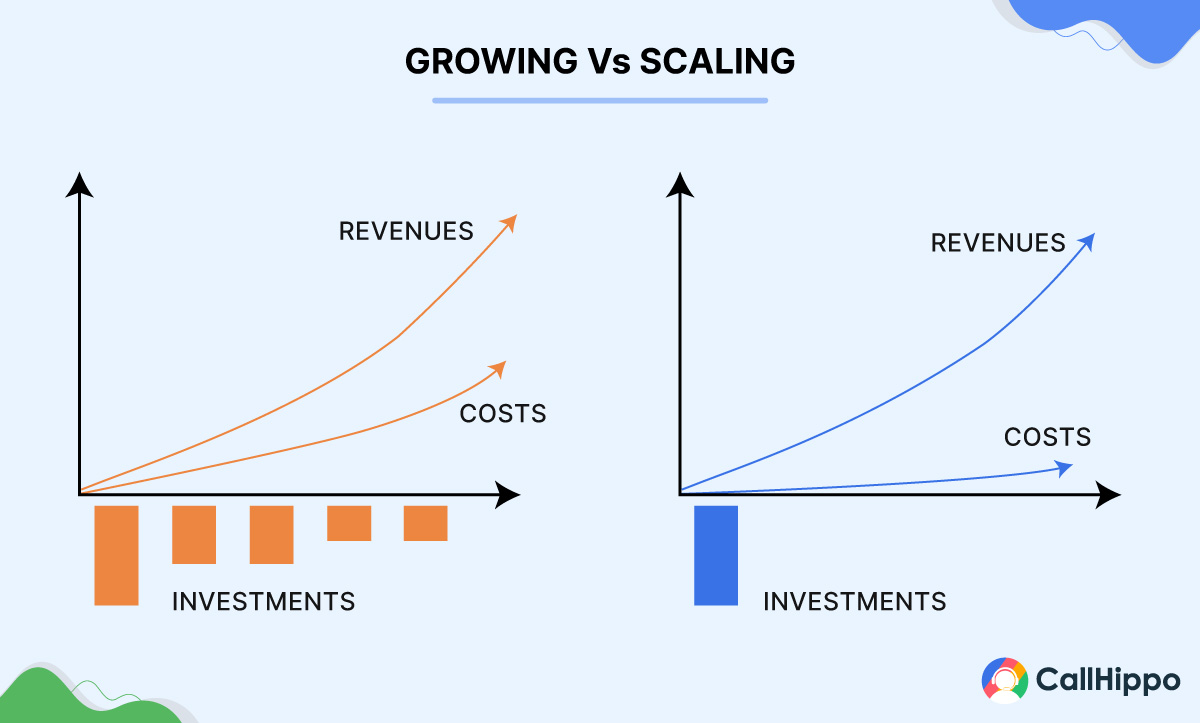
We often find people using scaling and growing interchangeably, which is wrong, given the distinctions between the two. Yes, both scaling and growing a business involves expanding its profitability and reach, but with different goals and methods.
So, let’s dive into the details of each term so you can focus on the right thing –
Basis | Scaling a business | Growing a business |
| Definition |
|
|
| Focus | Adopting technologies and processes that enable businesses to efficiently manage huge customer bases and transaction volumes. | Understanding new markets, expanding customer base, and enhancing current products or services. |
| Goal | Rapid growth with zero disruptions due to infrastructure or labor, while maximizing net income. | Rise in profit and sales. |
| Required resources | Doesn’t need additional resources. | Requires extra marketing budget, labor, and equipment. |
| Rate of increment | Exponential increase | Gradual increase |
5 Strategies to Make Your Business Scalable
An efficient business plan, robust tools, and a skilled team are the top prerequisites for scaling your business. Here are the 5 major strategies for a scalable business that cover all these ends and more –
1. The team or employees
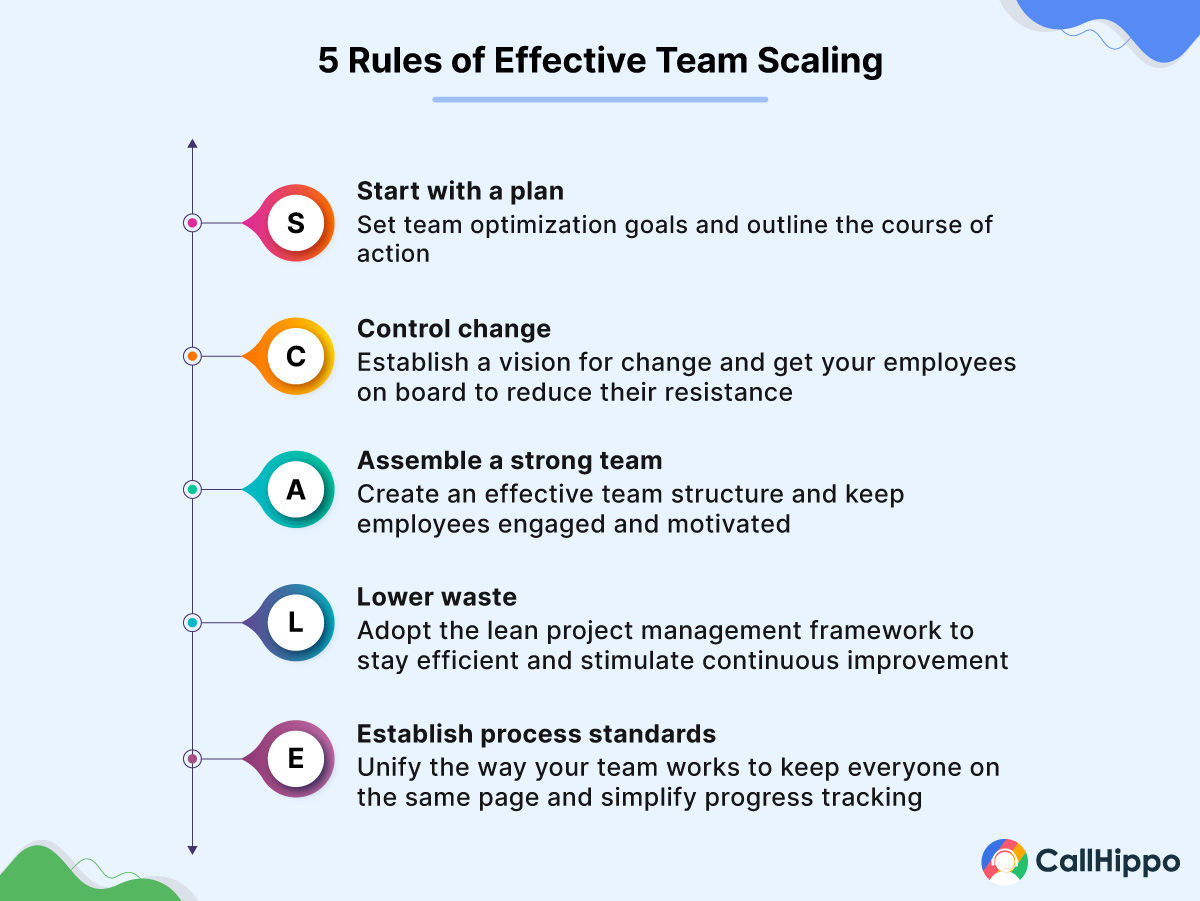
When you’re on the journey of scaling your small business, don’t fall for micromanaging every single operation, as it’ll inevitably drive you towards errors and burnout. A scalable business means you focus on high-level supervision rather than catering to all the individual business processes and making all the trivial decisions.
The key is to hire skilled specialists for enhanced productivity, boosted efficiency, and easy goal achievement. Your team must constitute the right team member(s) who can ace their mastered area of business. This way, you can rely on them to make the relevant decisions.
Here are the core capabilities of skilled specialists –
- Expand your IT framework to register a higher number of online requests.
- Determine and install new equipment or programs needed to handle large-scale operations.
- Fix technical issues without disrupting the operations.
- Have mastered their niche, like business analytics, coding, graphic design, or project management.
- Possess and efficiently use their soft skills like customer service, time management, communication, agility, and organization.
If that seems costly, you may also consider hiring independent professionals or taking up workers on a contractual basis. Then you only have to pay for services you avail and for the period you engage them. Best part? You can add on members as your business scales.
2. Automated solutions
Scaling is challenging for labor and staff-intensive businesses. Why? Because as you scale your business, your operations will expand which will ultimately burden your staff. A wiser choice is to adopt an automated solution that can automate repeated activities or steps of your operations, saving staff hours and letting them focus on strategic areas.
Robust automated solutions can –
- Simplify employee work, boost revenue, and reduce labor hours.
- Reduce errors that can lead to loss of customers and money.
- Automate core business areas like customer service, invoicing, and marketing.
- Empower staff to dedicate their hours to high-value and income-generating tasks, for example, taking up account management calls to build customer relationships.
- Help you best capitalize on your staff’s skills by freeing them from admin tasks.
- Enable you to identify profitable clients and extract data about them. This way, you can personalize your advertising and marketing, boosting sales.
3. Marketing
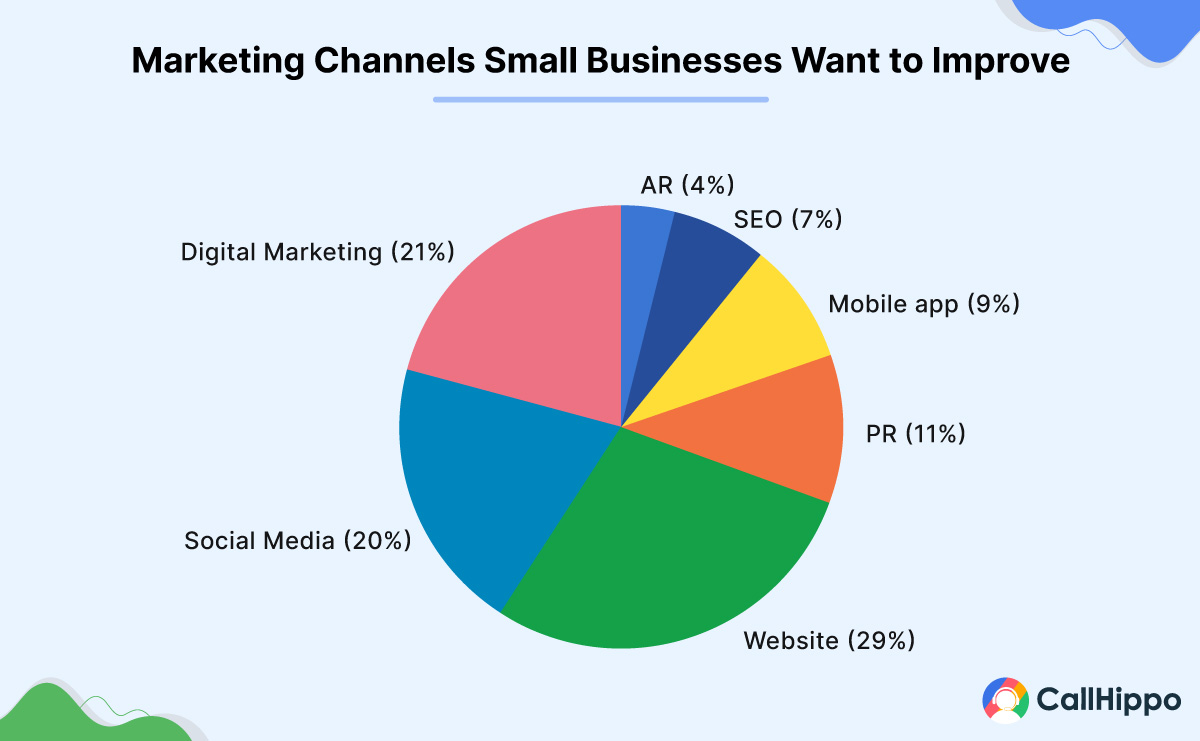
Marketing your business via an efficient marketing strategy is non-negotiable to scale your business. It is a never-ending process of attracting eyeballs for your newly launched products and refining them as per customer feedback. It helps you build a solid brand image and let the world know about you and your fortes.
However, you must note that marketing shouldn’t be restricted to launching new advertising campaigns or local promos to attract new leads.
Rather, marketing should aim to make your business a market leader. It must expand to participating in business conferences, becoming a part of workshops, and joining a global market.
- Salespeople with knowledge about sourcing and closing deals and advertisers who can drive interest with minimal cost can help you ace your marketing.
- They can help you identify your target audience and develop tailored marketing campaigns. How? By tracking campaign progress and constantly refining marketing strategy accordingly.
4. Right tools and technology
Skilled specialists and proven strategies are critical parts of the scaling process, but they won’t scale your business until the right tools are in place. Such tools help you achieve speedy results without incurring high labor costs.
Let’s get a glance at the major tools you need for scaling –
A. Robust communication software
To scale your business, you’d need to expand your services in various cities and countries where you don’t necessarily have a physical office. And if your team or customers access region-locked content, using a VPN for TV can ensure seamless media streaming across geographies without content restrictions. In such cases, it becomes mandatory for the business owner to stay connected with the team at all times for better communication and seamless collaboration.
The best communication platforms help you do that. Now, you (the business owner) can establish interruption-free communication with your existing client base, prospects, vendors, and suppliers via individual third-party communication tools.
For example, consider adopting a tool for voice calls, next for video conferencing, and another for meetings. If that seems overwhelming and cluttered, choose an all-in-one communication platform like CallHippo.
B. Client Relationship Management system
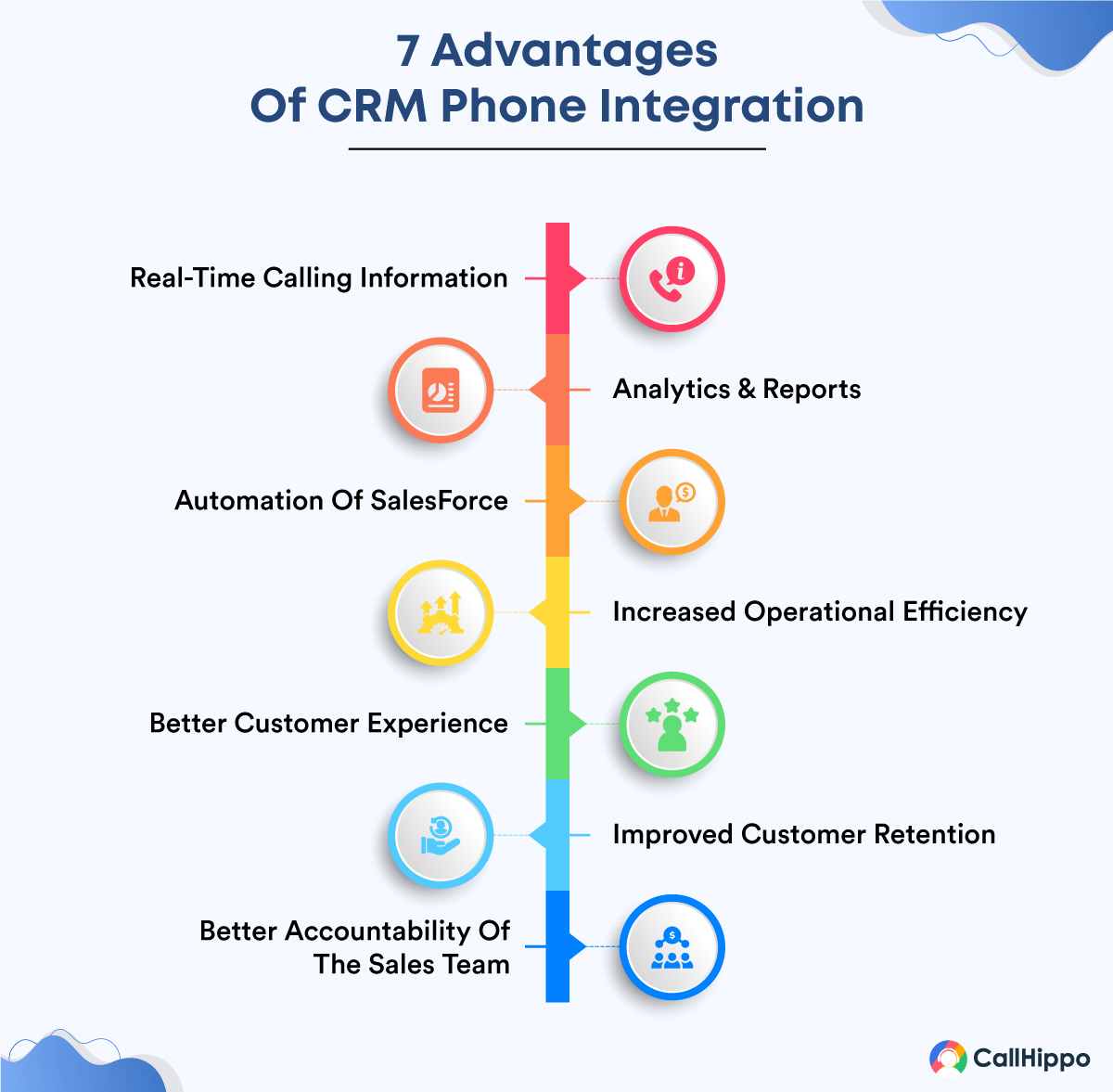
Scaling businesses often involves managing and leveraging substantial client information to serve clients better. But if your information is disjointed or fragmented, your team will end up wasting time organizing and making sense of the client data.
A CRM is a database tool that logs and organizes client-related data for easy access and usage. It centralizes all your client data in one place so that your team can easily find and extract useful client information.
With the right data in hand, they can better perform their activities and fulfill client needs. Some of the known CRM systems are HubSpot, Zoho, and Salesforce. Even better, integrate any of these or your existing CRM with CallHippo today.
C. Workflow automation software
Of course, as your small business scales, you’ll have to operate on a much larger level than ever before. That means you’ll have a lot of operations to cater to, which may be challenging for your team to manage.
To avoid burdening your team, identify the least to low-value activities that eat up your team’s hours the most. It may be task logging or information flow.
Then, automate the identified tasks to create a repeatable workflow. This will not just boost your team’s efficiency but also lower operating costs. In fact, 83% of IT professionals say that workflow automation is mandatory to achieve digital transformation. For instance, automating website creation and optimization using AI website builders can save time and effort. Hostinger offers a popular option that lets businesses quickly create landing pages and optimize content for SEO. This frees up more time for strategy and campaigns instead of focusing on technical details.”
5. Customer support knowledge
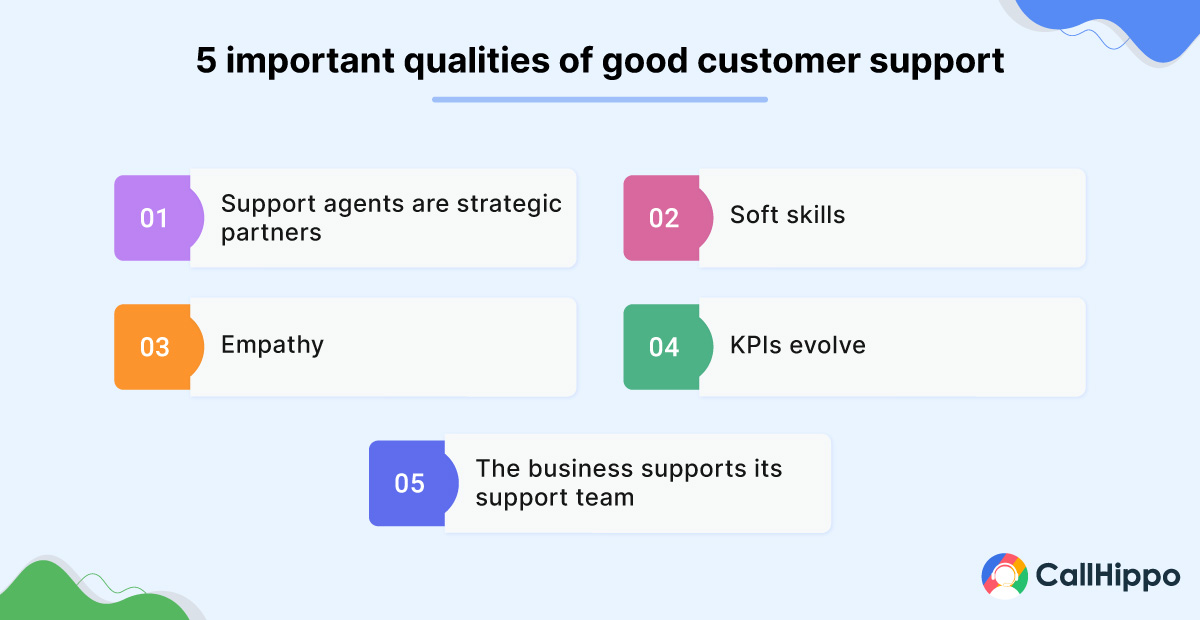
You cannot scale your business without offering efficient customer support to your clients. It’s critical to train your customer support team to be more proficient and empathetic. They must be able to understand client needs, decode client queries, and offer relevant support quickly.
For that, your team must have enough customer support knowledge.
- With this core business knowledge, you can streamline business processes, adopt effective communication strategies, and strengthen customer relationships. On achieving these goals, you get positive referrals, improving business scalability and growth.
- This customer support knowledge also equips you with information regarding customer trends, pain points, and preferences. Use this data to modify marketing strategies, business decisions, and product development methodologies for maximized business growth.
- Gaining such knowledge involves analyzing customer inquiries, interactions, and feedback to spot improvement areas and deliver tailored support. This is important because 70% of customers expect customer support executives to have the full context of their matter.
Once small businesses gain customer support knowledge, no one can stop them from improving customer experience, increasing operational efficiency, and driving growth with scalability.
5 Scaling Business Examples
You can scale almost all kinds of businesses (medium and small businesses) with the right approach. Here are the 5 most common examples of scalable businesses in the market –
1. SaaS business
Scaling a SaaS business involves releasing additional cost-effective software copies in the market. Yes, it’s that easy. Once your software is ready, you’ll only need to sell it to a larger target group at a much lower cost to scale. You’ll succeed until you’re making strategic decisions and implementing customer psychology ideals.
Here are some other ways to scale your SaaS company –
- Expand your sales and marketing efforts.
- Provide a free trial to showcase the value you have to offer.
- Curate a lucrative pricing strategy.
- Tap into new markets.
- Hyper-personalize your landing page.
2. Ecommerce business
Scaling an ecommerce small business involves delivering a product or service to a larger audience online. For instance, scale a consulting service business by sharing webinars or information with multiple target customers via Skype.
3. Replicated product business
To scale your online small business for products, you can either launch a wider product variety or simply launch and sell the same products to multiple regions.
4. Downloading business
Do you own a downloading company wherein you help people download applications, music, books, or games? Scale it by ensuring thousands of downloads a day.
5. Franchising and line production
To scale a line commodity production company or small business, simply automate its processes or production steps. A scalable business produces more at a much lower cost in less time.
How Can CallHippo Help?
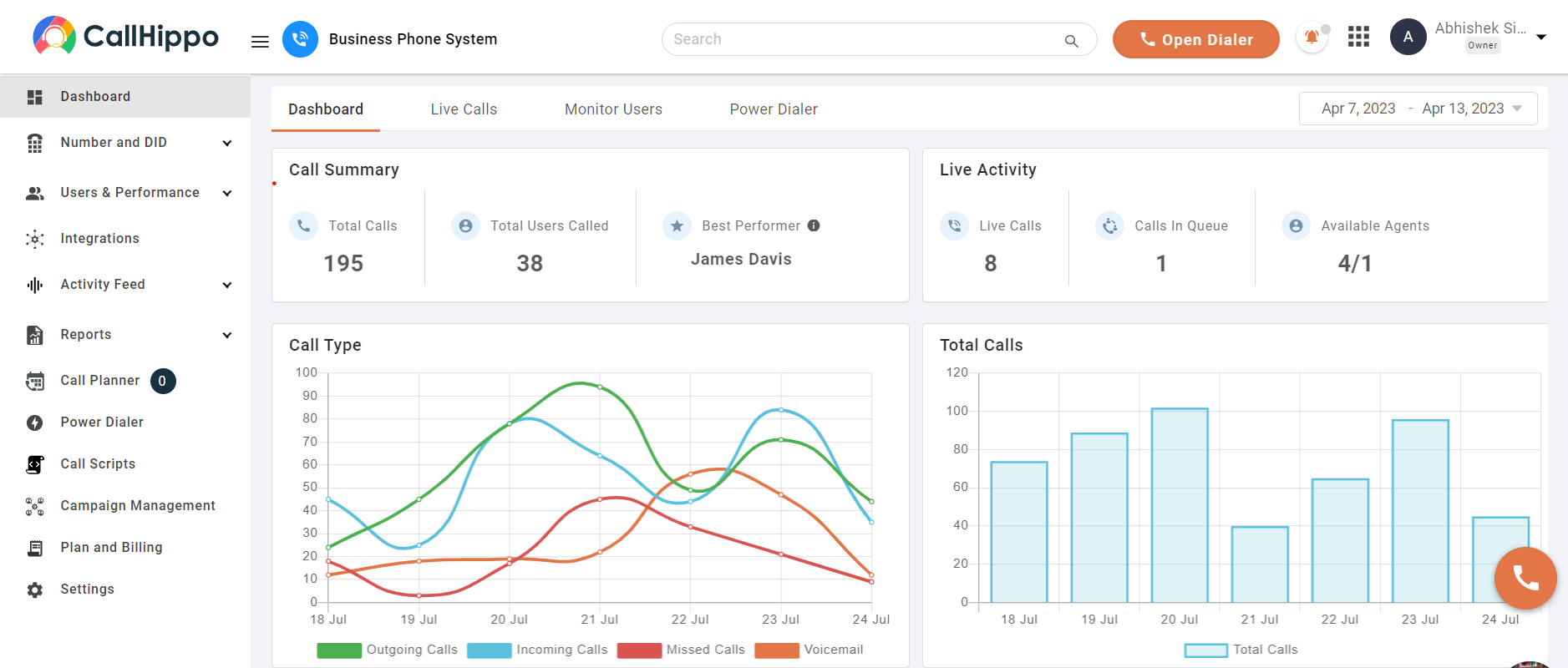
CallHippo is a robust VoIP provider that offers a roster of useful features to fulfill your scaling business’s communication, client management, and workflow automation needs. Here’s how CallHippo can help with business scalability via its unique functionalities and features –
- Lowers your monthly domestic and long-distance calling bills even if you need to make tons of calls to new customers, clients, or vendors with affordable pricing plans.
- Ensures you never miss an important client or stakeholder call, even during off hours, by diverting calls to available agents with call routing or smart call forwarding.
- Offers international numbers to ensure you can call internationally at minimal call charges without incurring hefty international call bills while building a local presence.
- Provides unlimited extensions to eliminate buying a new number for your newly added team members, keeping calling bills in check.
- Fosters effective team communication and collaboration with virtual group audio meetings and shared inboxes. You can access and manage messages, customer queries, and emails in one place with this inbox.
- Send pre-recorded broadcast messages to multiple numbers simultaneously to efficiently make announcements, promotions, or share updates as a responsible business owner.
- Manages huge call volumes and reduces wait times by placing them in queues, taking them up in chronological order, and informing them about the wait time.
- Allows you to dial a sales calling list efficiently without much effort or time by automating the dialing process. This boosts the sales team’s efficiency.
- Log important conversations for compliance, training, or quality review with call recording, as remembering or manually recording huge call data isn’t feasible.
- Offers useful call insights into call trends and metrics to help you make data-driven decisions, improve customer service, and optimize business processes.
You May Also Read : Best Virtual Business Phone Number Apps
Wrapping Up
Business scalability is non-negotiable if you want to thrive in the market, expand your customer base, and remain competitive. It requires a blend of the right talent, tools, and strategies. Now, striking the right balance between these three areas can seem overwhelming.
Not anymore with our five proven strategies and scalable business. They uncover the major tools and crucial subjects (like automation solutions, team, and marketing) you must focus on to ace your scaling process and improve your business scalability with minimal cost and effort.
You can also adopt an all-rounder yet affordable scaling tool like CallHippo that touches critical business areas like communication, workflows, and customer relationships. Interested in giving it a shot? Start a free CallHippo trial today!

Subscribe to our newsletter & never miss our latest news and promotions.










